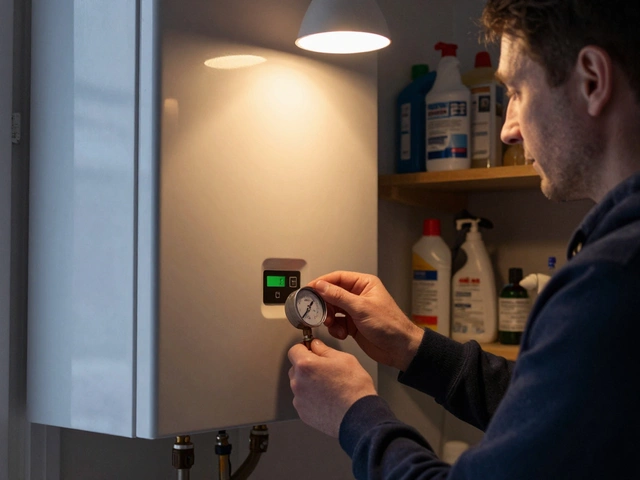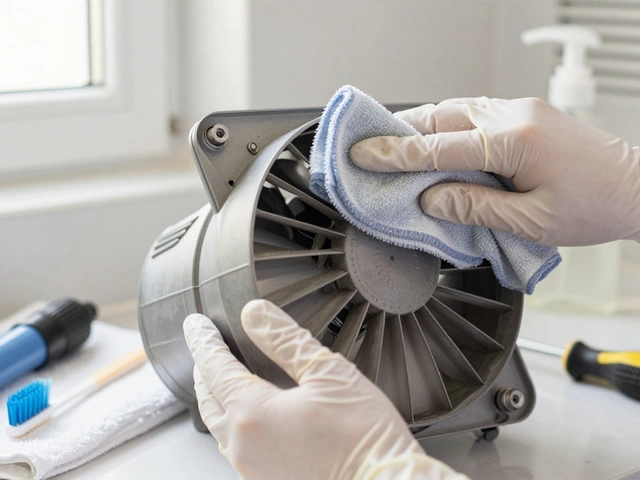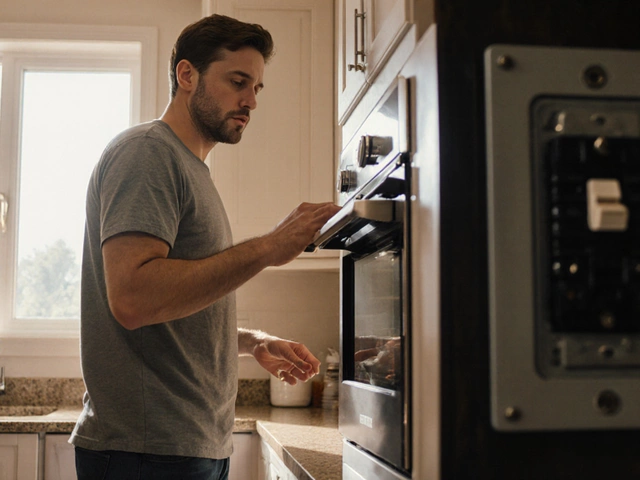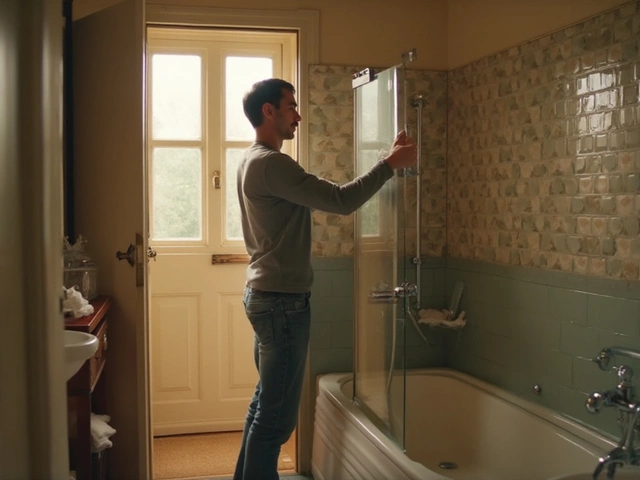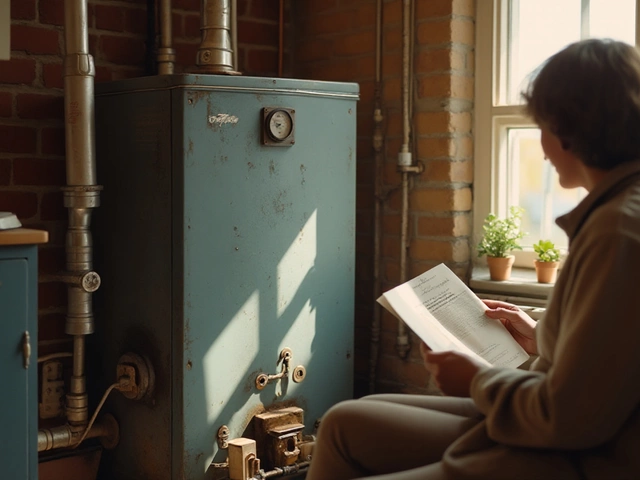Most people don’t think about their cooker until it starts acting up. But wait too long to replace it, and you could end up dealing with surprise breakdowns right before dinner. A cooker isn't just a kitchen commodity—it’s one of those things you lean on almost every day. So it's smart to know when it makes sense to hang on, or when it's time to say goodbye.
First off, cookers usually last anywhere from 10 to 15 years, but that’s just the average. The real answer depends on factors like how often you cook, how you care for it, and even the model itself. For example, an electric cooker from a reputable brand might outlive a cheaper gas one if you keep it clean and use it gently.
Don’t just count the years, though. Pay attention to how the cooker feels during use. Are the burners heating unevenly? Does the oven take forever to preheat? Those aren’t just minor annoyances—they could be early signs that things aren’t working like they should. Ignoring these clues usually means bigger repair bills down the road.
- Average Lifespan of Cookers
- Warning Signs Your Cooker Needs Replacing
- When Repairs Make Sense (and When They Don’t)
- Ways to Extend Your Cooker’s Life
- Choosing a New Cooker: What to Look For
Average Lifespan of Cookers
So, how long can you reasonably expect your cooker to last before you need to think about a replacement? The answer depends a lot on the type of cooker you have and how you use it. Not all cookers are built the same way, and brands vary a ton in durability.
Generally, gas cookers stick around for about 10 to 15 years if you’re using them regularly but taking decent care of them. Electric cookers are in the same ballpark, with a typical cooker lifespan of 13 to 15 years. Some premium brands or high-end models can honestly go up to 18 years, but those are more the exception than the rule. Induction cookers, if you’ve got one, also last about 10 to 15 years, provided the electronics hold up over time.
| Cooker Type | Average Lifespan |
|---|---|
| Gas Cooker | 10–15 years |
| Electric Cooker | 13–15 years |
| Induction Cooker | 10–15 years |
Usage is a huge factor. Families who cook multiple times a day put more wear and tear on their appliance compared to someone who mostly eats out. And, if you stay on top of cleaning and don’t slam pots around, your cooker could even outlast the average.
Another thing to keep in mind? If parts like the heating elements or control knobs start going out one after another, it’s probably a sign the whole cooker has run its course. Plan to start shopping for a new one instead of throwing good money after repairs.
Warning Signs Your Cooker Needs Replacing
Spotting the red flags early can save you headaches and keep your kitchen safe. A cooker isn’t meant to last forever—even the good ones have an expiration date. So what should you actually look for?
- Burners aren’t heating properly: If you’re cooking the same thing twice as long as you used to, or one side is burnt while the other side is raw, that’s more than just bad luck. Unreliable burners are a classic sign your cooker could be on its last legs.
- Oven doesn’t hold its temperature: If your cakes collapse or your roast is never cooked in the middle, your thermostat or heating element might be shot. Frequent temperature swings are a big warning sign.
- Strange noises or smells: Clicking, buzzing, electrical smells, or the scent of gas (with gas cookers) are major safety risks. Don’t ignore these.
- Visible damage or rust: Cracks on the surface, corrosion around burners, or rust inside the oven aren’t just ugly—they can be unsafe. Rust, especially inside an oven, can flake into your food.
- Too many repairs: If you’re phoning the repair service more often than your mother, something’s not right. One-off repairs make sense, but if you’re fixing a new hassle every month, it usually costs less in the long run just to get a replacement.
- Energy bills creeping up: If your gas or electric bill keeps rising but your cooking habits haven’t changed, your cooker could be the hidden culprit. Older models lose efficiency, and those extra watts or gas leaks add up.
Want a quick snapshot of the most common troubles that pop up after 10 years? Here’s what repair shops say:
| Common Cooker Problem | % of Cases After 10 Years |
|---|---|
| Burner Malfunction | 47% |
| Oven Not Heating Evenly | 38% |
| Electrical/Gas Issues | 32% |
| Broken Controls/Buttons | 27% |
If two or more of these symptoms sound familiar, it’s time to seriously consider replacing rather than repairing. Keeping a flaky cooker isn’t just costly—it can be risky.

When Repairs Make Sense (and When They Don’t)
Not every problem with a cooker means it’s time to buy a new one. Sometimes a quick fix will do the trick and save you cash. For example, replacing a worn-out oven seal or a faulty thermostat usually costs far less than a whole new cooker. If your cooker is less than 10 years old and hasn’t had many issues, a repair is usually the smart move—especially for small parts like knobs or heating elements.
But if repairs start piling up, or you’re facing a big-ticket fix (like a cracked glass top or a failed electronic control board), you need to think twice. Here’s a simple rule: if the cost to repair is more than half the price of a new cooker, don’t bother. You’ll be better off putting that money toward an upgrade. This is especially true when the warranty’s expired and spare parts are getting pricey or hard to find.
Energy efficiency is another factor. Older cookers can gobble up way more power than new models. If your electricity bills have crept up and your cooker is past its prime, those savings alone could help pay for a replacement in the long run.
- Repair makes sense if it’s a quick fix (switches, seals, sensors), and your cooker has been reliable so far.
- Replacement is smarter if the repair costs more than 50% of a new cooker, or if your appliance is already more than 10–12 years old with several past issues.
- Consider replacement if you see visible safety problems—like gas leaks, scorched wiring, or excessive rust—don’t risk a patch job. Those issues aren’t worth gambling with.
If you’re ever in doubt, call a trusted cooker repair tech. A ten-minute inspection could save you from wasting money or waiting too long to swap old for new. And remember, sometimes peace of mind is worth spending a bit now to avoid another breakdown right before you want to cook your favorite meal.
Ways to Extend Your Cooker’s Life
If you want to avoid shelling out for a new cooker too soon, some habits and quick fixes can really stretch out that lifespan. Most cooker breakdowns happen because people ignore simple care or skip the obvious stuff.
First off, get in the groove of regular cleaning. Food splatters, grease, and random spills can clog up burners and mess with the cooker lifespan. Once a week, wipe down your hob and clean burner parts with warm, soapy water (just make sure everything is cool before touching). For electric rings, a damp cloth (no soaking!) keeps residue from building up, which helps keep connections solid and heating even.
- Check seals and gaskets on the oven door every few months. If they’re cracked or worn, swap them out. A tight oven door means better energy use and even cooking.
- Stay on top of fan filters or extractor systems. Grease build-up not only stinks—it can shorten the life of the motor in your cooker hood.
- Run a quick burner test every month. If flames on a gas cooker are yellow (not blue), or electric plates are slow to heat, clean them and look for blockages. Call a pro if it keeps up.
- Don’t slam knobs or yank doors. Gentle use actually makes a difference, especially with older cookers.
Here’s some real talk—small repairs can pay off big time. A dodgy heating element or a worn thermostat doesn’t mean you need a new cooker. Swapping out a single part, especially early on, can buy you a couple of extra years.
Regular checkups are smart too. Booking a check with a qualified repair tech once every few years helps spot sneaky problems and saves you cash in the long run.
| Easy Maintenance | Possible Lifespan Boost |
|---|---|
| Weekly cleaning | +1 to 2 years |
| Replace seals as needed | +1 year |
| Fix minor faults quickly | +2 years |
| Schedule pro check every 2-3 years | +1 year |
The main thing? Take care of your cooker like you would any other appliance that gets daily use. Simple steps now can mean fewer headaches (and bills) later. And don’t forget—a well-maintained cooker lasts longer and runs safer, too.
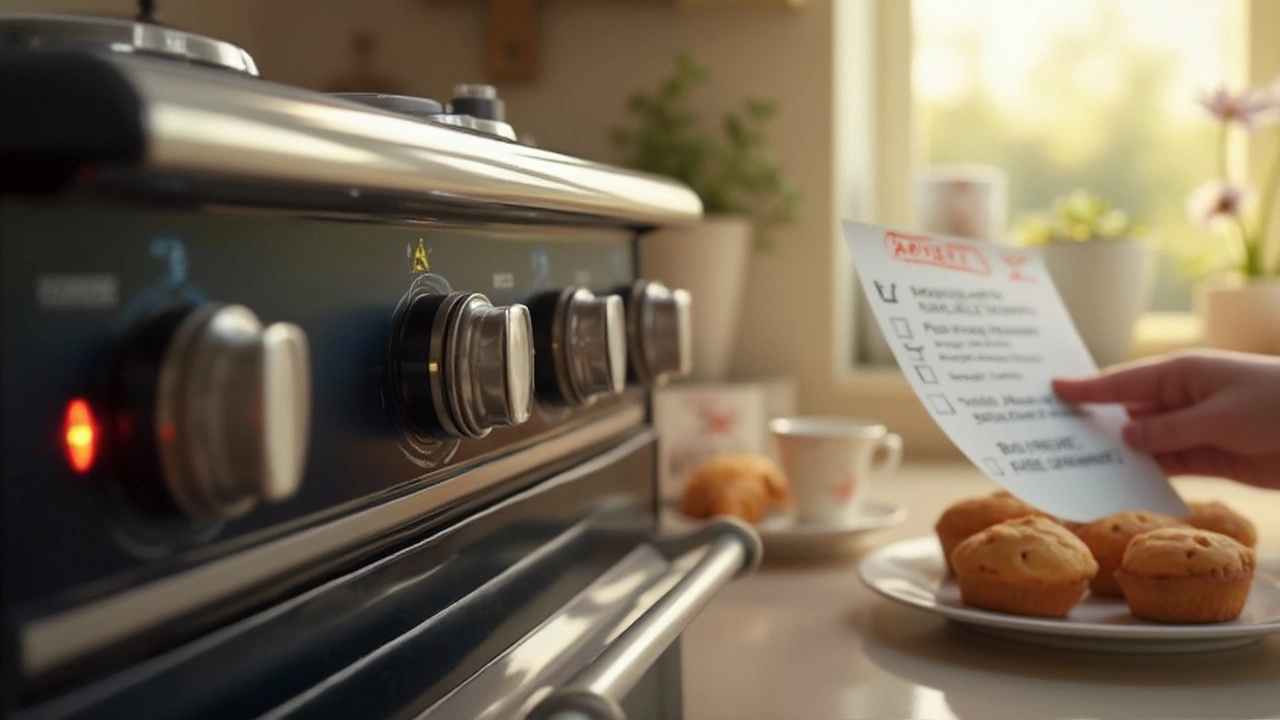
Choosing a New Cooker: What to Look For
Shopping for a new cooker can feel overwhelming, but focusing on the right things will save you time and headaches. Before heading to the store, think about how you actually use your cooker at home. If you cook big family meals every day, a sturdy, high-capacity oven is a smart move. If you mainly reheat leftovers, you might not need all the bells and whistles.
One of the key tips is to check energy efficiency ratings—modern cookers are way more efficient than older ones, meaning you’ll save money on bills. Look for models with an A or A+ energy label. Gas cookers are often cheaper to run, but electric and induction models are catching up in terms of efficiency and safety.
You should also check the size and fit. Measure your kitchen space before buying. There’s no worse feeling than hauling a new cooker home only to find it won’t squeeze into your kitchen. Standard sizes in the UK are usually 60cm wide, but double ovens and large ranges can go up to 90cm or more.
If you want something that lasts, check for build quality. Heavy doors, solid knobs, and interior shelves that don’t rattle usually mean better durability. A quick way to compare cookers is to check the warranty. Some manufacturers now offer 5-year parts and labour guarantees, which can be a life-saver if anything breaks.
Think about these features before making a choice:
- Cooker lifespan: Some brands are known to last longer (ask for specific models in-store).
- Easy-clean enamel or self-cleaning ovens for less scrubbing.
- Timer and programmable settings, which make life easier if you’re juggling a busy household.
- Rapid heating zones or induction hobs for quick cooking.
- Safety features like child locks and automatic shut-off.
Here’s a handy table comparing some popular cooker types:
| Type | Average Lifespan | Energy Efficiency | Upfront Cost |
|---|---|---|---|
| Gas Cooker | 10-15 years | Good | Moderate |
| Electric Cooker | 12-15 years | Very Good | Moderate to High |
| Induction Cooker | 10-13 years | Excellent | High |
Don’t forget to factor in installation. Swapping a gas cooker for an electric one (or the other way around) can mean extra costs for new outlets or pipes, so always ask before you pay. And be sure a qualified professional does the hookup—especially for gas. Safety first.



